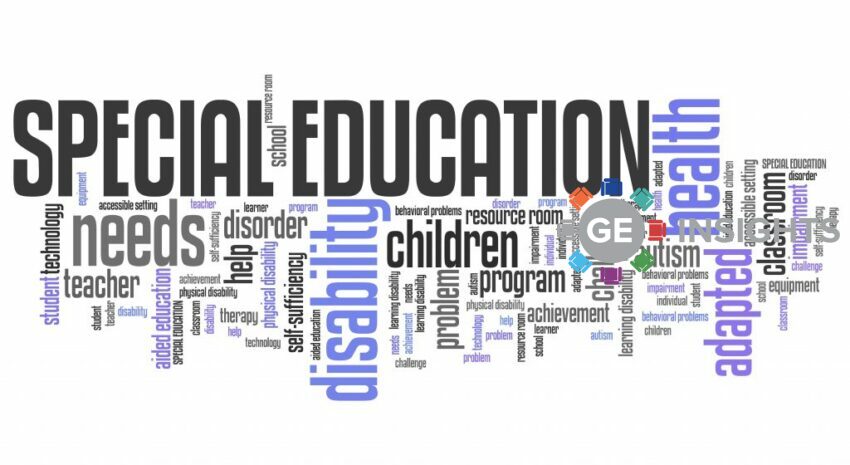LGBTQ+ people are one and a half times more likely to develop depression and anxiety disorder compared to the rest of the population. [1]

Sarah Stephenson-Hunter, is a Staff Disability Advisor and Trans Lead in the Equality Diversity Unit at the University of Oxford. As a blind trans woman with over 15 years of experience in the public sector, she posseses a unique blend of professional and personal experience of the issues faced by disabled and LGBTQ+ people in the workplace and wider society. In this article she shares examples of Kelly Holmes’ and her own experience with mental health, using these examples to illustrate how people can be better allies in suppoting LGBTQ+ colleagues with their mental health.
Kelly Holmes’ Story
“I can now Finally be happy.”
Dame Kelly Holmes
Whilst her story has understandably had a lot of overwhelmingly positive attention, Kelly’s story of having to hide her true self for the fear of rejection and losing all that was dear to her, in this case, a career in the military is something those of us in the lesbian, gay, bisexual, trans and gender questioning (LGBTQ+) community are all far too familiar with.
Whilst many significant advances in LGBTQ+ equality have been fought for and won by LGBTQ+ people and our allies there is still a long way to go before LGBTQ+ people are accepted, supported and valued as equal members of society.
Looking at this in terms of wellbeing and mental health in particular it’s perhaps unsurprising to note that whilst being LGBTQ+ doesn’t necessarily mean you will have poor mental health all the evidence shows that there are alarming levels of mental ill-health amongst the LGBTQ+ community compared to those within the general population.
LGBTQ+ Mental Health
A recent study by Stonewall found that:
- One in eight LGBTIQ+ people aged 18-24 had attempted to end their life
- Half of LGBTIQ+ people had experienced depression and three in five had experienced anxiety
- More than one in 10 trans people (12 per cent) attempted to take their own life, compared to two per cent of LGBTQ+ people who aren’t trans
- Almost half of trans people (46 per cent) have also had thoughts about taking their own life.
Speaking of her own battles with poor mental health, Dame Kelly describes how she has battled for years with self-harm and depression and how for her even the jubilation of winning Olympic medals wasn’t enough to dampen the voice at the back of her mind that wished she could be true to herself and not have to hide a fundamental part of who she was.
Sarah’s own Experience
As someone who wrestled with questions around my sexuality and gender identity for a number of years before coming out as trans in 2013 I can wholeheartedly identify with what Kelly describes; that feeling deep down in the core of your being that you’re not able to be your authentic self and the feelings of shame, guilt and self-hate that often accompany it. For me, it took the death of my father and major change in my health to bring me to the point where I felt I had no choice than to stop running from what I now refer to as my “tidal wave” of emotions and thoughts about who I truly was.
Like many LGBTQ+ people the levels of emotional and psychological capital required to manage thoughts and emotions that I felt I couldn’t share had a hugely detrimental impact on my physical and mental health. Like many others my journey to self-acceptance and ultimately gender transition was a dark and painful one which came at great cost. Finally being able to be me and live authentically as who I was always meant to be brought a great sense of relief but also deep sadness at how low I’d had to get before feeling able to do something about it.
Supporting your LGBTQ+ Family, Friends and Colleagues.
So what you ask can you do to better support the wider LGBTQ+ community?
Well sadly there’s no magic one size fits all solution but here’s some simple steps you can take to better support the wider LGBTQ+ community.
Obviously none of this is a substitute for seeking professional help from trained mental health professionals but hopefully these pointers may go some way to improving the general wellbeing of LGBTQ+ people you come into contact with.
Listen
We live in a world which seems to continually underestimate the transformative power of being truly listened to. This is definitely the case for LGBTQ+ people who often feel like they have to fight to have their voices heard above the self-appointed straight non-trans “experts”. If you genuinely want to improve the lives of LGBTQ+ people then there’s nothing more powerful than taking the time to stop and listen to them when they talk about their lives and what it’s like to be LGBTQ+. Whether, it’s one-to-one with a friend or colleague, at a specific LGBTQ+ talk or event, the best thing you can do is actively listen.
Listen to what that person is saying and try to see things from their perspective.
Learn
Listening to LGBTQ+ people when they speak is just one part of the process. To demonstrate you’re an ally, then you need to pledge to learn as much as you can about the things that matter to LGBTQ+ people. Whether this is investing the time to learn about the legal context, how to use inclusive language, what pronouns are and why they matter or what steps you can take to improve LGBTQ+ inclusion in the workplace the fact you’re displaying a genuine desire to learn about the issues speaks volumes.
Act
It may well be a cliché but it’s nevertheless true; actions really do speak louder than words! It’s one thing saying how much you believe in equality for LGBTQ+ people but it’s another thing altogether to put those words into actions no matter how small or trivial they may seem.
Whether it’s agreeing to become an LGBTQ+ ally in your workplace, taking part in active bystander training so you know how to deal with incidents of LGBTQ+ hate crime when you witness it or putting your pronouns on your work signature. The important thing is that you’re putting your beliefs into action.
Being LGBTQ+ is tough at times, especially in the current political context. Even if you’re someone like me who’s made the decision to be open and out about their LGBTQ+ identity, it does take its toll sometimes. It’s at these times that I really do value those allies who step up and take some of the strain, they allow me to take some much needed time out of the firing line to .
Find out more
If you’d like to explore this discussion then you could take a listen to a recent podcast in which I discuss some of the issues highlighted above and more with Rebecca Reid, a mental health and wellbeing specialist.
Sarah Stephenson Hunter (She/Her)
Staff disability Advisor and Trans lead at the University of Oxford and disability and LgBTQ+ trainer, speaker and podcaster with Simply Equality.
[1] Mental Health UK, LGBTQIA+ People’s Mental Health
Register FREE to access 2 more articles
We hope you’ve enjoyed your first article on GE Insights. To access 2 more articles for free, register now to join the Government Events community.
(Use discount code CPWR50)




